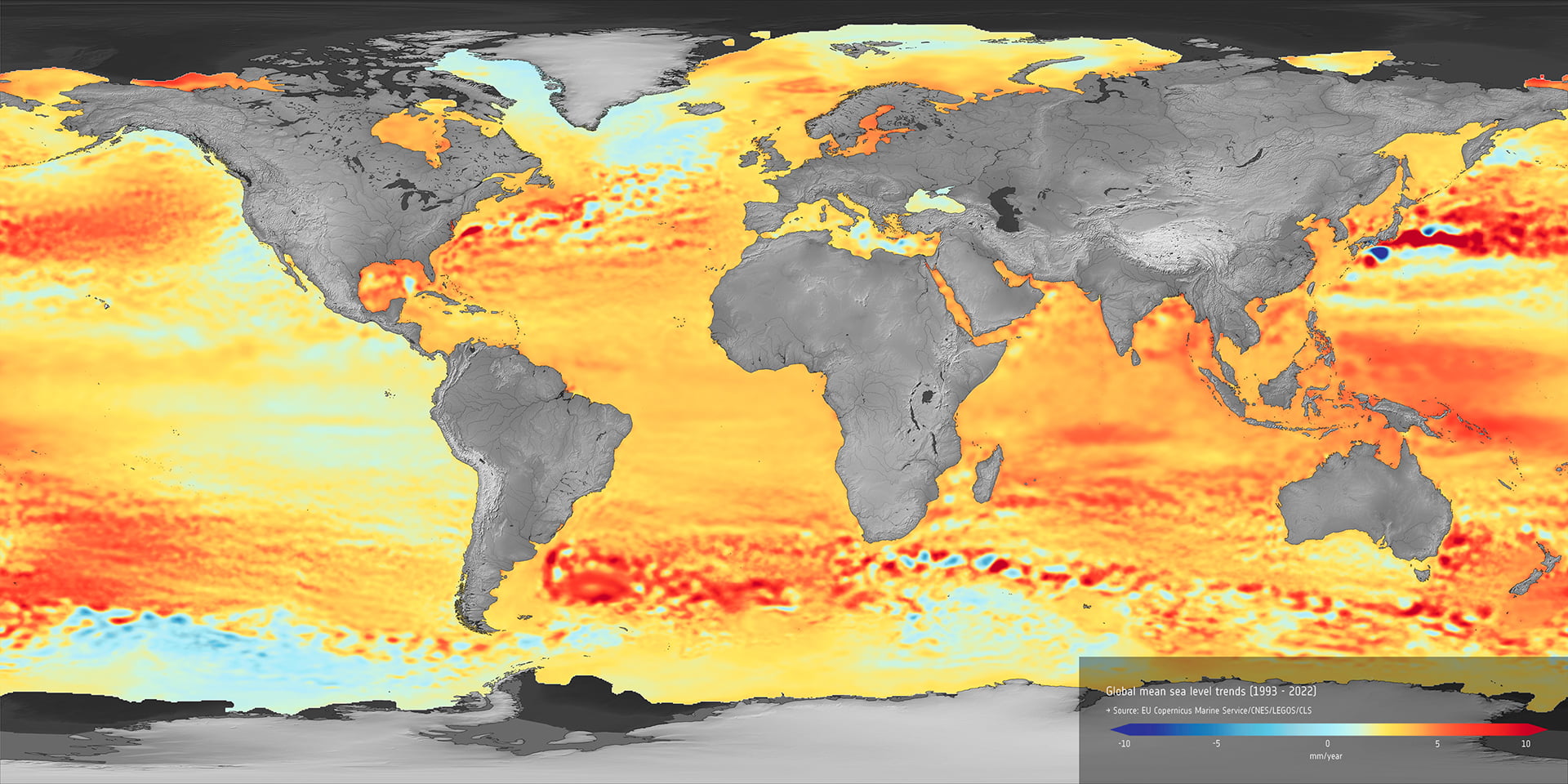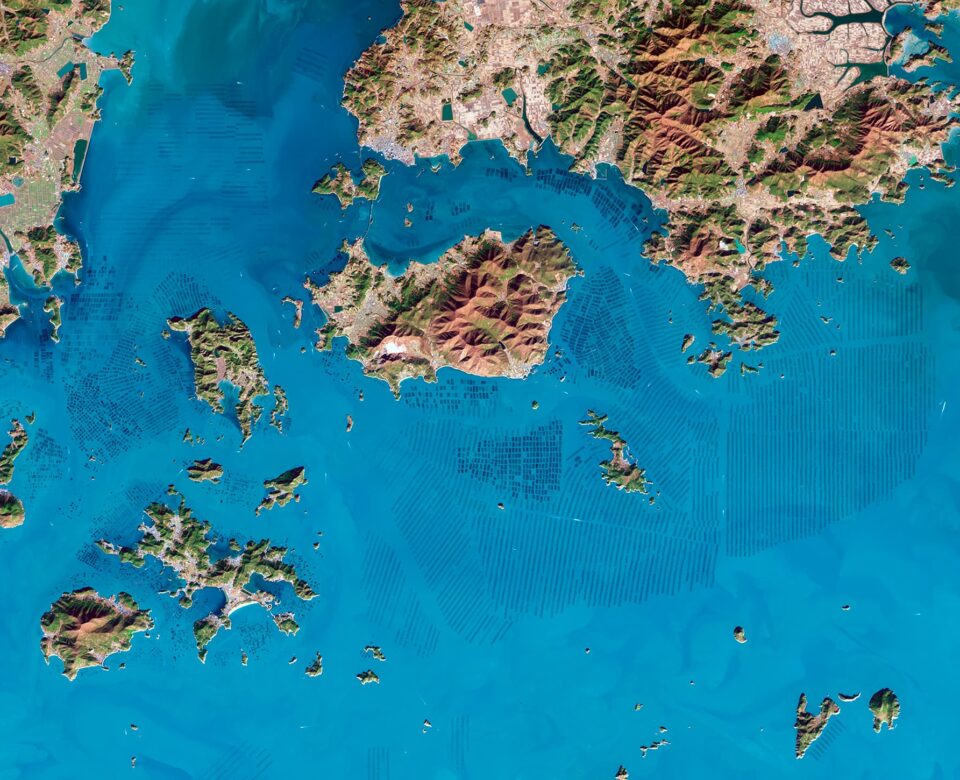
An Icy Farewell
March 13, 2024
Literal Heat Waves
March 13, 2024Islands
Adrift
Maldives
More than 80% of the Maldives’ land is less than one metre above average sea level. This extremely low elevation makes the country, and its inhabitants, particularly vulnerable to rising sea levels. Satellite data has shown that, globally, the ocean has risen an average of 3 mm a year over the last 25 years. But more alarmingly, satellite data shows the rate has accelerated over the last few years to around 5 mm per year. Warming ocean waters, melting glaciers, and diminishing ice sheets are making rising sea levels a real threat to low-lying islands such as the Maldives.
© Sentinel-2, Copernicus, ESA
Many low-lying islands are at risk of disappearing or becoming uninhabitable due to sea-level rise, which is driven by climate change. Sea level has risen by about 20 centimeters since 1900, and could rise by another meter by 2100. Satellites measure sea level, coastal erosion, and vulnerability, and support adaptation and resilience strategies.
Regional mean sea-level trends between 1993 and 2022: the red shows where sea levels have risen and the blue where sea levels have fallen. In the last 30 years, sea levels have been rising at a rate of three millimetres per year, a rate that is increasing. Half of this rate is accounted for by increased sea surface temperatures, while the other half comes from melting ice sheets and glaciers.

Angélique Melet
Oceanographer
Mercator Ocean International
Toulouse, France
"Global warming is essentially ocean warming. The ocean has absorbed 90% of the Earth’s extra heat caused by global warming and increased greenhouse gases in our atmosphere. As deep ocean layers heat up, the consequences will become more numerous and widespread: rise in sea-levels, more destructive cyclones, and acidification. The impact on marine life will be disastrous..."

Tania Casal
Campaign scientist
European Space Agency - ESA



